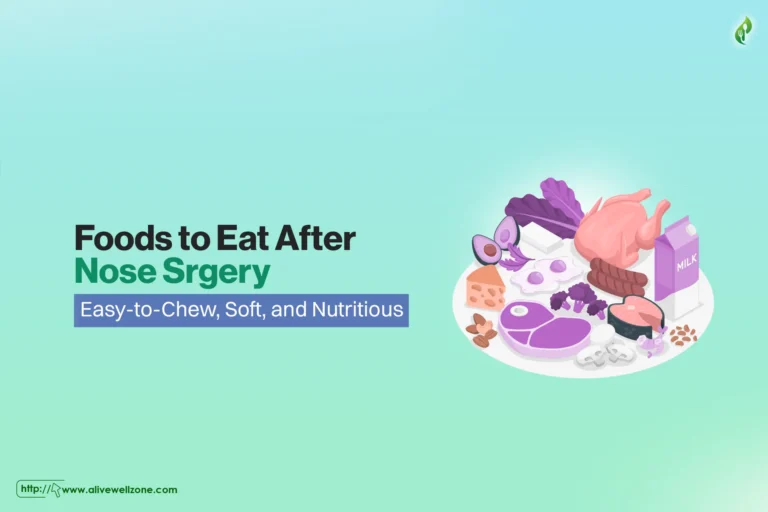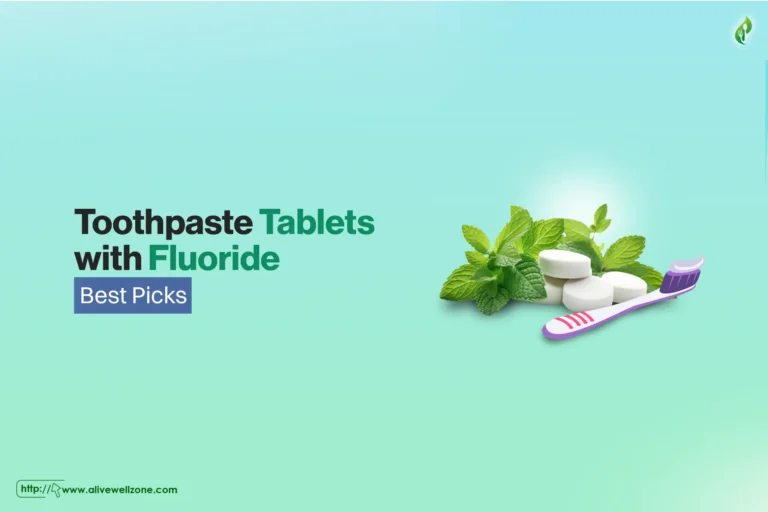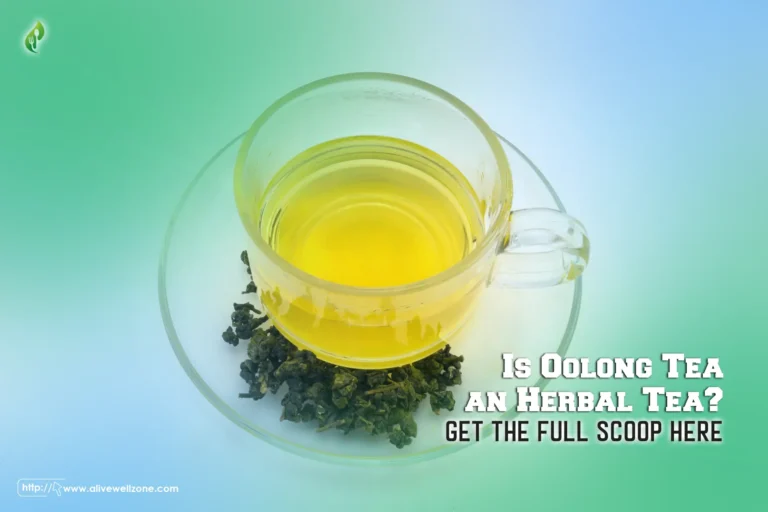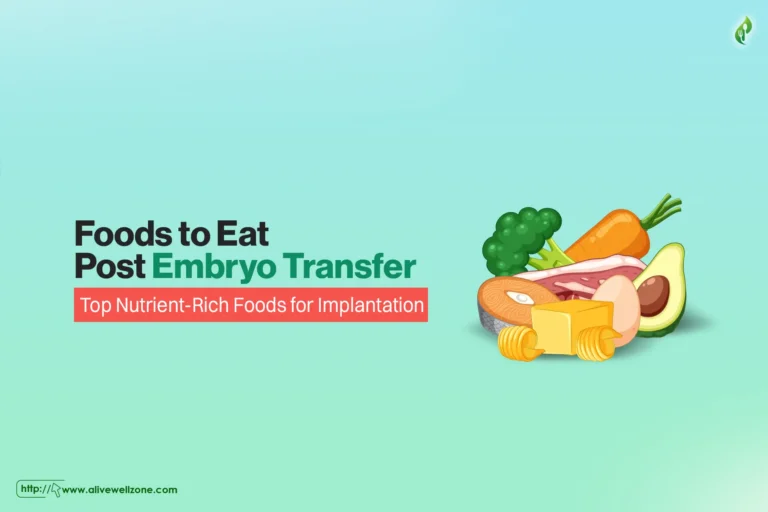
Last Updated on December 5, 2024 by Helena Akter
Are you tired of the sugar overload in your diet? Many of us are looking for ways to cut back on added sugars without sacrificing taste. Fortunately, there’s a growing number of nutritious foods that contain zero added sugars.
These foods are healthy fats like butter and olive oil, and nutrient-rich organ and ruminant meats. Plus, low-carb veggies like spinach and broccoli, and seafood like salmon and shrimp. These foods offer vital nutrients without added sugars.
In addition, we’ll explore fruits and drinks that contain no sugar at all or very little sugar. Most importantly, how much sugar you can take to stay healthy. So, keep reading!
Key Takeaways
- Zero Sugar Foods: Foods like healthy fats (butter, olive oil, coconut oil), organ meats, and ruminant meats (beef, lamb, goat). They’re rich in essential vitamins, healthy fats, and proteins without any added sugar.
- Low-Sugar Fruits: Avocados, strawberries, and blackberries are low-sugar options packed with fiber and nutrients. These fruits offer a healthy alternative to higher-sugar options like dried or canned fruits.
- Sugar-Free Beverages: Opt for drinks like tea, sparkling water, and coffee without added sugars. Coconut water is a hydrating, low-sugar substitute for soft drinks.
- Managing Sugar Intake: The American Heart Association recommends keeping added sugar intake below 5-10% of daily calories. Artificial sweeteners may help reduce sugar but can lead to cravings and gut health issues. Whole foods with natural sugars are a better alternative.
Top 7 Foods That Contain No Added Sugar For Your Daily Diet
The typical American adult takes in around 17 teaspoons of added sugar daily. So, you need to be careful about what you’re eating and how much sugar is going into your body.
With that thought, here are the foods that contain zero sugar you can incorporate into your diet —

1. Healthy Fats
For a long time, people were told to stay away from fats because of the “low-fat” fad. But it turns out that fats are really important for our health. In fact, our bodies need fats to survive.
If you stopped eating carbohydrates, you’d have to get your calories mostly from fats, about 65-80%. And our body can only use about 35% of calories from protein before it becomes harmful.
Now, foods that have low sugar and good sources of these fats include —
- Butter
- Beef, bison, and duck fat
- Lard
- Ghee
- Coconut oil
- Olive oil
Besides, healthy fats do many things for our bodies, like —
- Helping our cells work properly
- Helping us get vitamins A, D, E, and K, which are good for bones, our immune system, vision, and heart health
- Helping make important hormones like estrogen and testosterone
- Keeping our brains working well
So, fats aren’t bad. The right kinds of fats are important for keeping your body healthy and strong.
2. Cheese and Yogurt
Yogurt and cheese are amazing foods that people often forget about. Cheese, especially the kind that’s been around for a long time, has a lot of good things in it.
It’s got a mix of fats and proteins, and also some special compounds called bioactive peptides that are good for you. Cheese like pecorino and blue cheese have thousands of these compounds. One of them, spermidine, might help you stay younger.
Full-fat yogurt is another great choice that doesn’t have sugar. It has a good mix of fats, proteins, and probiotics that help your gut stay healthy. Besides, you can eat yogurt in case you suffer from dry mouth. It helps!
3. Organ Meats
When it comes to highly nutritious foods without sugar, organ meats are at the top. They’re often overlooked but are rich in B vitamins. Plus, they got vitamins like A, D, E, K2, and C, along with special peptides unique to organ meats.
For example, beef and chicken liver contain about 50 mg/kg of CoQ10, an antioxidant that helps support heart health and may reduce cancer risk. Bone broth made from marrow is also a great source of collagen. It helps in your gut repair and strengthens joints.

Hence, adding organ meats to your diet can provide a significant nutritional benefit.
4. Ruminant Meats
Ruminant meats come from animals that eat grass and digest it in their stomachs. They’re packed with nutrients and have some of the healthiest fats you can find. Most importantly, they don’t contain sugar and give you benefits like —
- Beef is easy to get and is full of B vitamins, healthy fats, and all the nutrients you need. You can even live on a simple diet of red meat, salt, and water.
- Lamb is rich in zinc, glutathione, and conjugated linoleic acid, which helps reduce inflammation.
- Goat meat is a great source of protein and fats. Plus, goat meat is also high in potassium, about 344 mg per 3 ounces or 10% of the DV. Something you don’t find much in meat.
- Bison is even more nutritious than beef, with higher amounts of vitamin B12, zinc, iron, selenium, and omega-3s.
5. Eggs
Eggs are one of the most complete foods you can eat. They have all the nutrients needed to grow a living thing, making them very nutritious.
In fact, eggs are full of —
- Healthy fats
- High-quality, complete proteins
- Vitamin K
- Vitamin D
- Choline
- Selenium
6. Low Carb Veggies
When searching for foods that have no added sugar, you can include —
- Arugula
- Spinach
- Romaine Lettuce
- celery
- Asparagus
- Eggplant
- Cucumber (technically a fruit)
- Cabbage
- Zucchini
- Tomato (technically a fruit)
- Green beans
- Cauliflower
- Broccoli
- Kale
- watercress
- White Mushrooms
- Bell Pepper (red/yellow/green)
- Brussel sprouts
- Sweet potatoes
- Swiss chard
- Rutabaga
- Potatoes
- Parsnips
- Celeriac
- Fennel
- Beetroot
- Carrots
- Onions
- Jicama
- Radishes
7. Seafood
Seafood is very nutritious and a great choice if you don’t eat sugar. Some of the best seafood options are rich in healthy fats and vital vitamins.
- Fatty fish like salmon, sardines, and anchovies are packed with omega-3 fatty acids and many B vitamins. Speaking of salmon, try the salmon recipes you can make every day.
- Mussels and oysters are good sources of vitamin D, selenium, zinc, and copper.
- Crustaceans like shrimp, lobster, and roe contain astaxanthin. In fact, astaxanthin (AST) is a powerful antioxidant that’s 6,000 times better than vitamin C at fighting free radicals.
- Salmon roe is also very high in vitamins A, B, D, K2, and neuroprotective omega-3s like EPA and DHA. It also has important minerals like zinc and iodine.
Delicious 7 Fruits That Contain No Sugar
If you’re watching your sugar intake, you might want to choose fruits that are low in sugar. Here are some low-sugar fruits you can eat.

1. Avocados
If you’re looking for a low-sugar option, avocados are a great pick, with only 0.66 grams of sugar per 100 grams. On top of that, they come with a generous 6.7 grams of fiber, which can help keep your digestion on track.
In fact, eating an avocado daily for around 12 weeks has been linked to better blood sugar levels and improved heart health. It’s especially true if you struggle with obesity or insulin resistance.
Plus, thanks to their healthy monounsaturated fats, avocados may help reduce your cholesterol levels. So, it can be a simple addition to support your heart health journey.
2. Strawberries
Strawberries are a great choice if you’re looking for a snack that’s both tasty and low in sugar. In 100 grams of strawberries, you’re only getting about 4.89 grams of sugar, which is pretty low for something so sweet.
For a clearer picture, 8 medium strawberries have around 8 grams of sugar.
But that’s not all! Strawberries are also packed with fiber, and they give you a solid boost of vitamin C.
3. Peaches
We often think of peaches as sweet, but they only contain around 8.39 grams of sugar per 100 grams. A medium peach has roughly 13 grams of sugar, making it a naturally sweet yet healthy choice.
However, you should avoid dried or canned peaches, as they usually have extra sugar. If you’re looking for a lower-sugar option, opt for fresh.
4. Oranges
Oranges are a favorite fruit for many, offering about 9.35 grams of sugar per 100 grams. A medium orange contains around 14 grams of sugar and provides a rich source of vitamin C.
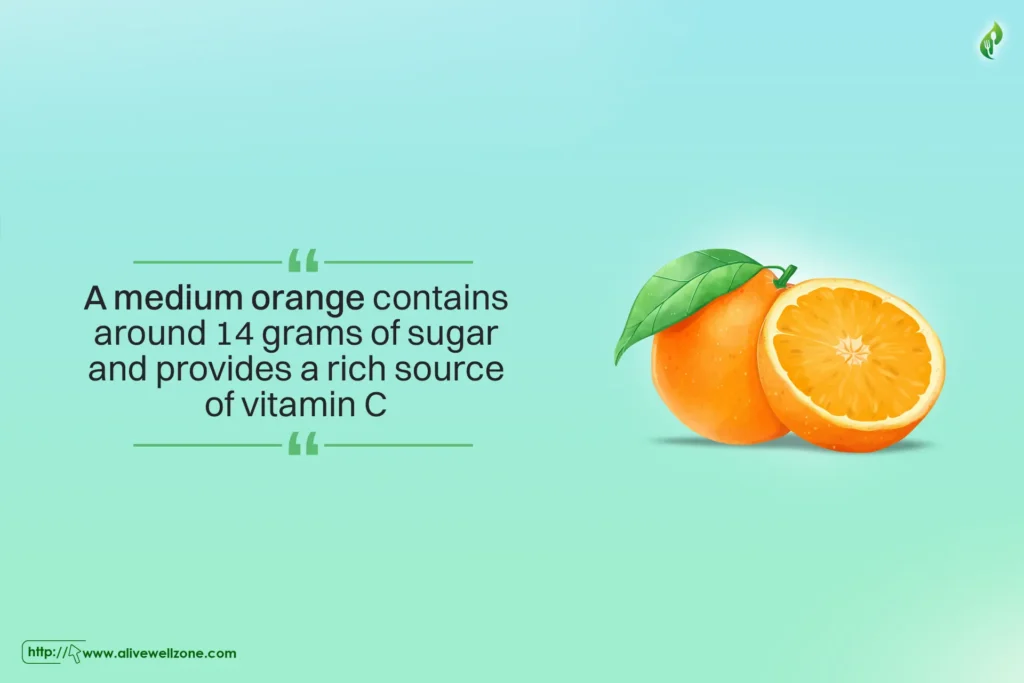
However, if you enjoy orange juice, keep in mind that store-bought varieties can contain added sugars. Plus, drinking juice may increase your sugar intake more than you’d expect.
To better manage sugar levels, we recommend eating the whole orange instead of opting for juice.
5. Blackberries
Blackberries are a great low-sugar option, with only 4.88 grams of sugar per 100 grams. They’re also rich in fiber, giving you about 5.3 grams per serving, along with 1.39 grams of protein.
You also get the added bonus of antioxidants from blackberries, which can help protect your body from damage. Interestingly, if you’re comparing berries, blueberries have about twice as much sugar as blackberries.
6. Grapefruit
Grapefruit is a popular low-sugar fruit, especially at breakfast. In 100 grams, you’ll find about 7.31 grams of sugar. If you go for half of a medium-sized grapefruit, you’ll be consuming around 11 grams of sugar.
Well, some find the sharp taste of grapefruit too intense. In that case, you can give a light drizzle of honey or a sprinkle of Stevia to sweeten it up without piling on extra sugar.
7. Cranberries
Cranberries are low in sugar, with only 4 grams per cup. They’re also full of plant compounds like flavan-3-ols, benzoic acid, and anthocyanins that help protect your body.
Plus, cranberries can reduce urinary tract infection risk by one-third, especially for people who get them often.
If you like dried cranberries, watch out for added sugar. A small serving, like a quarter cup, can have around 29 grams of sugar. To keep your sugar low, we recommend eating fresh or unsweetened cranberries whenever you can.
6 Drinks that Contain Zero or Low Sugar You Should Try
We all know that sugary drinks like soda and fruit juice are bad for us. So, if you’re looking for a healthier way to quench your thirst, try one of these sugar-free or low-sugar drinks instead.

1. Hot or Iced Tea
Whether you like your tea hot or iced, there are plenty of flavors to enjoy. From light, floral teas to bold, earthy chais, there’s a taste for everyone. The caffeine content also varies depending on the type, and tea can be made in many different ways.
If you’re looking for a caffeine-free option, you might want to check out herbal tea. They’re a calming, natural choice.
2. Sparkling Water: Unflavored or Flavored
Sparkling water, next to tea, is one of the most varied drinks without sugar. You can choose plain sparkling water or explore a wide range of flavors. Options like Strawberry Lemongrass, Peach Mango, LaCroix, Sanzo, and Key Lime offer something for every taste.
3. Water with Lemon or Lime
Adding lemon or lime to your water is a simple way to have a refreshing drink without sugar. A little splash of lemon or lime is usually enough to give your water a nice, light flavor without going overboard.
Some people think lemon water can speed up your metabolism, but there’s not much proof for that.
However, it can make your water taste better, helping you stay hydrated without adding sugar. Just be careful not to use too much—too much lemon juice can make your lips sore or your teeth sensitive.
4. Herb and Fruit Infusions
To make a tasty drink using leftover fruits without sugar, try infusing them with herbs. It takes a bit of time, but the longer you steep them, the stronger the flavor becomes.
For a cool, refreshing drink, put slices of lemon and cucumber in a pitcher of cold water and let them sit for at least 4 hours. This will make a light, refreshing drink that tastes even better the longer you let it sit.
5. Coffee
Switching to black coffee or coffee without added sugar can take some time, but many people eventually like it. A good tip is to start with high-quality coffee beans, so the natural flavor comes through and you don’t need as much sugar.
It may take a little time to get used to, but your taste buds will change. You can also try adding milk or oat milk if it’s too bitter at first. Over time, you’ll enjoy the rich flavors of coffee without needing sugar to hide them.
6. Coconut Water
Coconut water is one of the foods that contain low sugar. And it’s a great way to replace sugary sodas.
Besides, it’s hydrating and has fewer calories and sugars than most soft drinks. So, it’s a healthier option. Plus, coconut water is full of electrolytes like potassium, sodium, and magnesium, which can help you stay energized and refreshed.
Just be careful about how much you drink—like any drink, too much is not good for you.
How Much Sugar is Okay?
If you want to manage your sugar intake, aim to keep added sugars at 5-10% of your daily calories. To make it easier, follow these simple guidelines from the American Heart Association (AHA) —
- For men, the daily limit is 9 teaspoons of added sugar, which is about 36 grams or 150 calories.
- For women, it’s best to stay under 6 teaspoons, or 25 grams, which comes to roughly 100 calories.
As a point of reference, a single 12-ounce can of soda contains around 8 teaspoons of sugar, which equals 32 grams.
The AHA recommends that added sugars make up no more than 6% of your daily calories. Meanwhile, the USDA suggests keeping added sugars below 10% of your total daily intake. Keeping these limits in mind can help you make healthier choices.
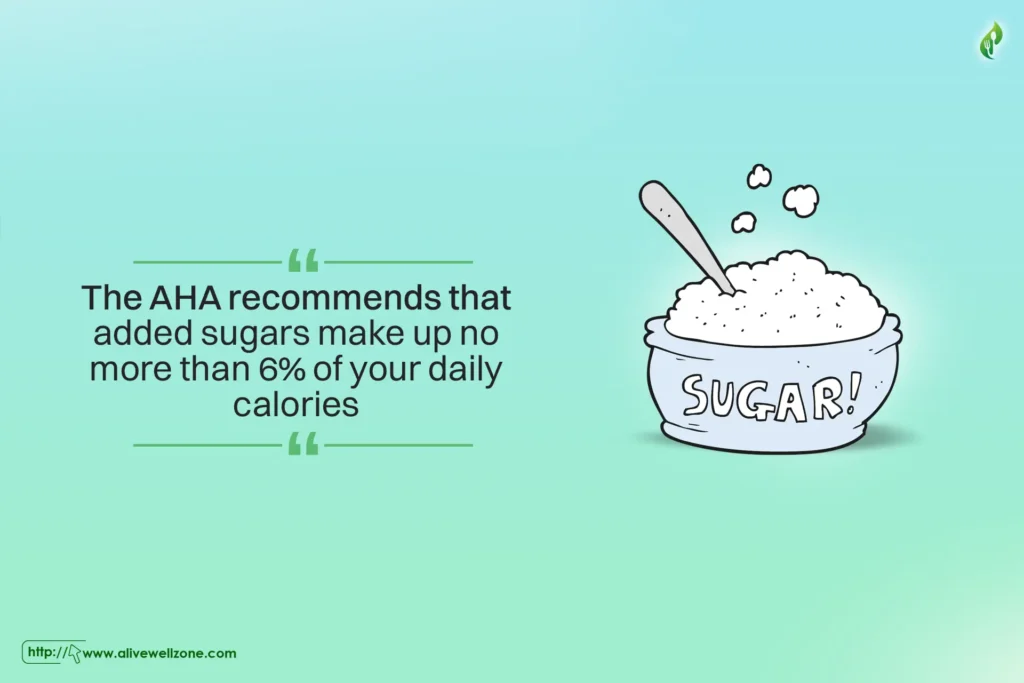
Are Artificial Sweeteners Dangerous?
Many people switch from sugar to artificial sweeteners in their drinks and snacks, hoping to lose weight and avoid blood sugar spikes. These sweeteners usually don’t affect insulin and are low in calories.
However, Harvard’s School of Public Health says the long-term safety of these sugar substitutes is still unknown. They might help you reduce sugar intake! However, you should avoid artificial food additives and sweeteners overall.
Besides, artificial sweeteners can still make you crave sweet things, which might lead to overeating or weight gain. They might also affect your gut health by changing the balance of bacteria in your digestive system.
Since the gut is connected to your immune system, this can have broader health problems. Instead of using sweeteners, it’s better to focus on whole foods with less sugar.
Final Words
Incorporating foods that contain zero sugar into your diet is simpler than you think. To get the nutrients you need without extra sugar, choose foods like healthy fats, organ and ruminant meats, low-carb vegetables, and seafood.
Low-sugar fruits like avocados and berries are also good choices. By eating less sugar, you can improve your health. These foods will give you the nutrients you need without hidden sugars.
Keep trying these foods to create a healthy lifestyle.
FAQs
How do I know if a food contains sugar?
To know if a food contains sugar, check the ingredient list on packaged foods. Added sugars will be listed, but natural sugars won’t. Be cautious of artificial sweeteners listed under various names like Saccharin, Aspartame, Sucralose, etc.
Which foods contain free sugars?
Free sugars are found in foods like candy, cakes, biscuits, chocolate, and sugary drinks like soda and fruit juices. These are the types of sugar-rich foods you should limit.
How can I flush sugar out of my system fast?
To flush sugar from your system quickly, drink plenty of water. Hydration helps your kidneys remove excess sugar more effectively. Studies show that staying well-hydrated can lower your risk of high blood sugar.

